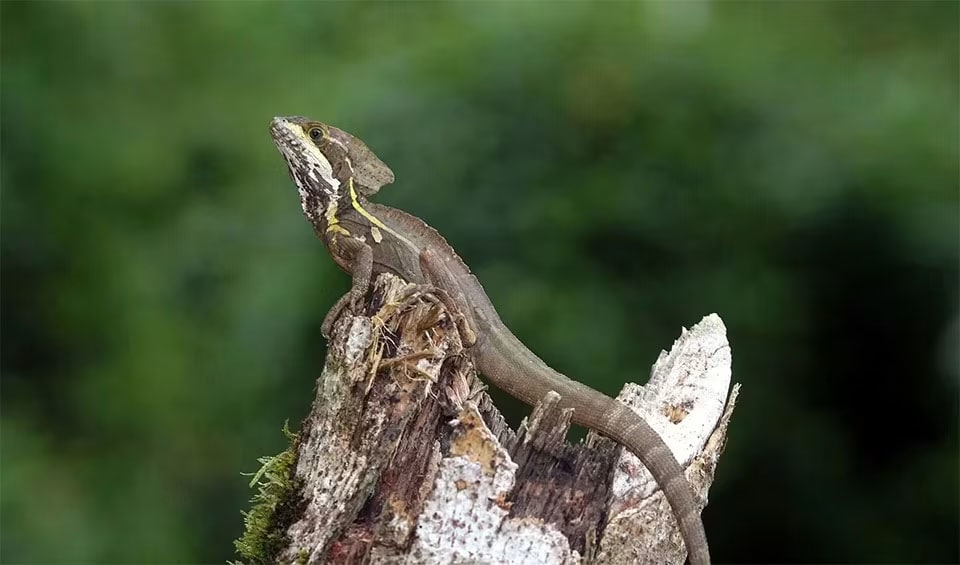These remarkable reptiles are native to lowland rainforests of Central and South America, from Nicaragua down through Panama and into northern South America.
This lizard is well-known for its unique adaptation of long toes on its hind feet, edged with flaps of skin (fringes) that unfurl in the water, significantly increasing the surface area of its feet. This adaptation, coupled with a unique motion where they rapidly churn their legs, allows them to create enough lift to run bipedally across the water’s surface for short distances. To achieve this, they must slap their feet hard against the water, creating a tiny air pocket that keeps them from sinking, a behavior that has fascinated both scientists and the general public.
The Common basilisk is semi-aquatic and is usually found in close proximity to water sources such as streams, rivers, and lakes in the rainforest. They are adept swimmers and will dive into the water to escape from predators. Their diet is varied, consisting of insects, small mammals, smaller species of lizards, fruits, and flowers.
Solitary by nature, common basilisks tend to socialize only during the breeding season. Males are territorial and will defend their area aggressively against other males. During the breeding season, males display their prominent crests and bright coloration to attract females and dissuade rivals.
Distribution
 Colombia
Colombia Costa Rica
Costa Rica Guyana
Guyana Nicaragua
Nicaragua Panama
Panama Venezuela
VenezuelaAnything we've missed?
Help us improve this page by suggesting edits. Glory never dies!
Suggest an editGet to know me
Terrestrial / Aquatic
Altricial / Precocial
Polygamous / Monogamous
Dimorphic (size) / Monomorphic
Active: Diurnal / Nocturnal
Social behavior: Solitary / Pack / Herd
Diet: Carnivore / Herbivore / Omnivore / Piscivorous / Insectivore
Migratory: Yes / No
Domesticated: Yes / No
Dangerous: Yes / No






